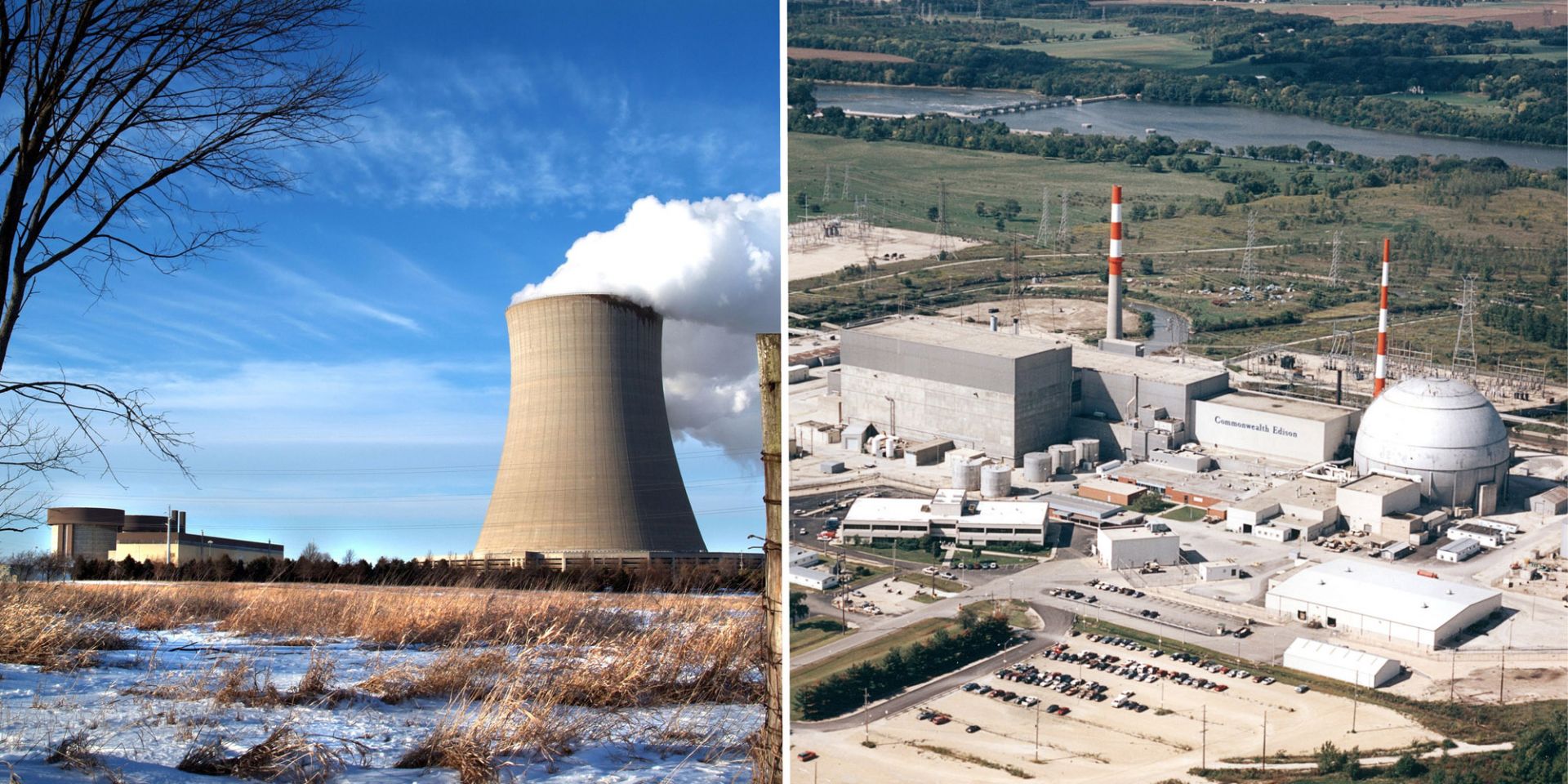Byron (left) and Dresden (right) may be looking at early retirement if Springfield doesn't pass an energy package before the fall of 2021.
On August 27, I stood in front of small groups of socially distanced employees at our Dresden Generating Station in Illinois, announcing plans for the premature retirement of the nuclear facility next fall. A hundred miles away, our chief operating officer was delivering a similar, equally somber announcement to employees at the Byron Station.
Despite being among the safest, most efficient, and reliable nuclear plants in the nation, Dresden and Byron face revenue shortfalls in the hundreds of millions of dollars because of declining energy prices and market rules that allow fossil fuel plants to underbid clean merchant nuclear resources in the PJM capacity auction, even though there is broad public support for sustaining and expanding clean energy resources to address the climate crisis.
U.K. government funding for nuclear research and innovation in advanced fuels and recycling is having a significant impact and reenergizing the U.K. research base.
June 12, 2020, 2:55PMNuclear NewsPaul Nevitt, Dave Goddard, and Robin Taylor 
Fig. 1. Geographical spread of U.K. organizations engaged in the U.K. AFCP, including a number of the world leading U.K. universities. Image: NNL
Called “the first significant public investment in a generation,” the U.K. Advanced Fuel Cycle Program (AFCP) is driving innovation to underpin future nuclear deployment in the United Kingdom. Led jointly by the U.K. Department for Business, Energy and Industrial Strategy and the National Nuclear Laboratory (NNL), the program involves more than 40 U.K. organizations, including a number of world-leading U.K. universities (Fig. 1), and is working with international organizations across more than 10 countries, leveraging U.K. investment into more than £100 million in international programs.



 The World Nuclear Association has issued a white paper advising the world’s policymakers and regulators to adopt a science-based, all-hazards risk assessment and management system that holistically evaluates the contributions of different energy sources and sets a level playing field.
The World Nuclear Association has issued a white paper advising the world’s policymakers and regulators to adopt a science-based, all-hazards risk assessment and management system that holistically evaluates the contributions of different energy sources and sets a level playing field.

 The levelized costs of electricity generation from low-carbon technologies, including nuclear, are dropping and are increasingly below that of conventional fossil fuel generation, concludes a new report from the International Energy Agency and the OECD Nuclear Energy Agency (NEA).
The levelized costs of electricity generation from low-carbon technologies, including nuclear, are dropping and are increasingly below that of conventional fossil fuel generation, concludes a new report from the International Energy Agency and the OECD Nuclear Energy Agency (NEA).
 ANS Executive Director/CEO Craig Piercy was a recent guest on the
ANS Executive Director/CEO Craig Piercy was a recent guest on the 